Media | Articles
11 garage essentials for any DIY car enthusiast
A garage is often a compromise between a dumping ground and a professional workspace. What jobs we do and how long each takes is up to us, how prepared we are, and a healthy dose of luck. The last we can’t really control, but the preparation factor is something we very much can.
Our tools are pretty much always at the ready, but breaker bars and gasket scrapers are not the only supplies you need. If you plan to regularly take on automotive projects, you’ll want to keep these 10 lubricants, fasteners, and clean-up materials on hand.
Grease
So many components need the sticky lubrication of grease. Generic chassis grease, in a tub or tube, is critical. If used correctly, it can solve a lot of problems, from capturing shavings while drilling into metal to holding needle bearings in place during engine assembly. A well-prepared garage should never run out of it.
Oil
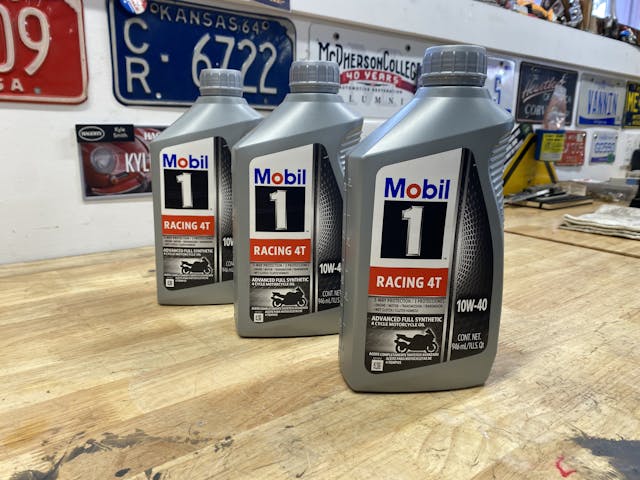
If you run to the parts store every time you need to top up your vehicle’s oil, you’re on a fool’s errand. Buy a few quarts up front. Stash one in the car and a couple underneath your workbench or on the shelf.
I like to keep everything needed for a full oil change on hand all the time, just in case. That decision hinges on the fact my vehicles’ oil filters are not readily available from the local parts store. Your mileage may vary.
Marketplace
Buy and sell classics with confidence
Gas
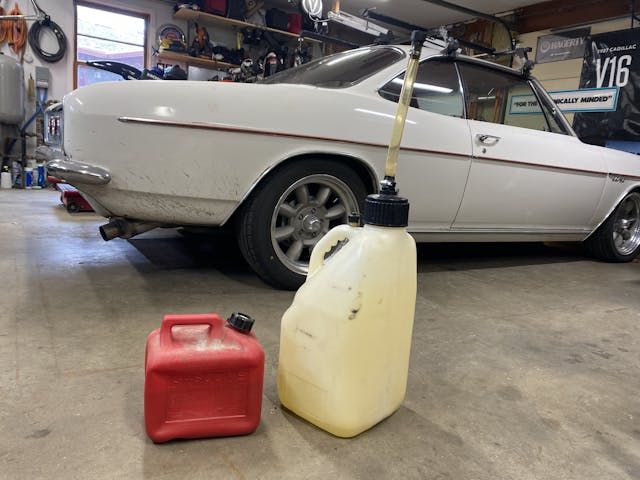
Having a gallon or two of fresh gasoline can be handy for diagnosing a poorly running vehicle or priming a car before it comes out of storage. The trick here is to use your garage’s fuel stash often and top up the cans to keep the fuel from going sour.
Remember: Gasoline should not be used as a solvent or cleaning solution. While it’s tempting, since you have some on the shelf, fight that urge. Use the proper chemicals rather than risking a fire that could burn your whole garage to the ground.
Carburetor and brake cleaner
Since you aren’t cleaning with gasoline, keep actual cleaners around. Between aerosol carburetor– and brake-cleaners, you have two of the most popular and versatile solvents.
Some people use them interchangeably, but brake cleaner can often leave a bit more residue. Will carb cleaner do the same job in a pinch? Yes, but using the right tool for the job is always best practice.
Cutting blades
Regardless of what project you are working on, and especially if you’re fabricating, there is a non-zero chance you will need to cut something. From hacksaw blades to razor blades, a sharp edge can be critical in rescuing a project.
Wire and some connectors
Most enthusiasts seem to despise wiring projects, but the vast majority of wiring problems are simple fixes. Most electrical issues trace to broken wires or corroded connections, and the best things to stock are a handful of connectors and loops of wire in various gauges.
Unlike most of the other supplies on this list, wires and connectors don’t go bad. Buy in bulk now, and forget about the cost when you dip into the stash.
Penetrating oil
Just like having carb- and brake-cleaners around, keeping your favorite penetrating oil on the shelf and ready will make your life so much easier. I always keep a brand-new can next to the open one. Once I open the new can, I restock. This ensures I will never be mid-project without the ability to break free stuck hardware.
Rags and oil-dry
Spills happen. The appropriate mess-control methods are important to keeping your working environment safe and efficient. Rags are also helpful for cleaning off tools at the end of the day and for plugging inlets that you don’t want to fill with debris—like intake ports, if you’re working on carburetors.
Zip ties
They aren’t the solution to everything in life, but zip ties solve a lot of problems, from tidying wires to organizing disassembled parts.
Pro tip: Buy black zip-ties. The carbon black added to the resin makes these more UV-resistant than white or clear ones.
Common hardware
The number of times I’ve needed to fabricate something to replace a stripped fastener … yeah, don’t ask. I now know the bolts and nuts that I’m most likely to encounter on my projects, and I keep these fasteners well-stocked. It’s confidence-inspiring, because, if something happens, I know I’ll save time by avoiding a special order.
Your shop manual
It’s not a consumable, but you should always keep a shop manual in the garage. From step-by-step instructions and wiring diagrams to exploded drawings of individual components, shop manuals are a godsend.
My favorite approach is to find a .pdf version of the appropriate manual and save it on my computer before printing it off and putting it into a three-ring binder. Original, bound printings are great, but decades of storage can make pages delicate. A self-printed manual can always be printed again if you spill oil on it or otherwise damage it.
***
Check out the Hagerty Media homepage so you don’t miss a single story, or better yet, bookmark it. To get our best stories delivered right to your inbox, subscribe to our newsletters.


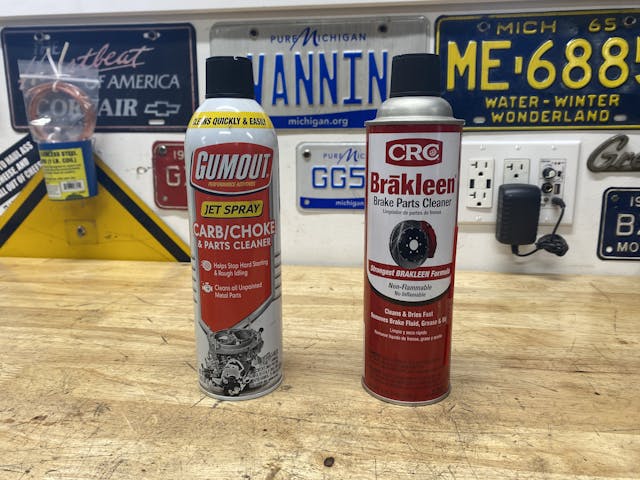
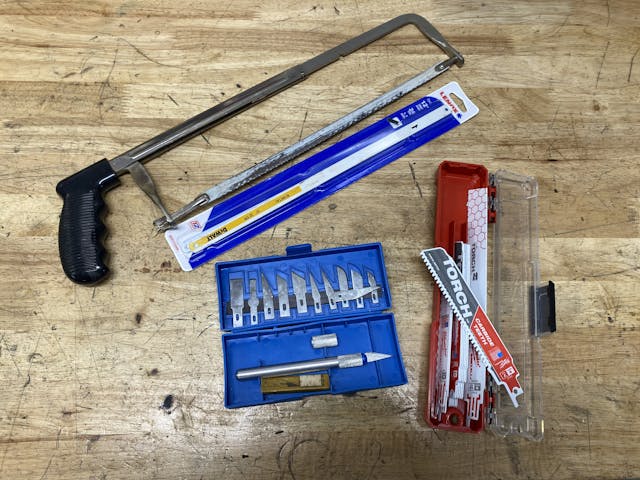
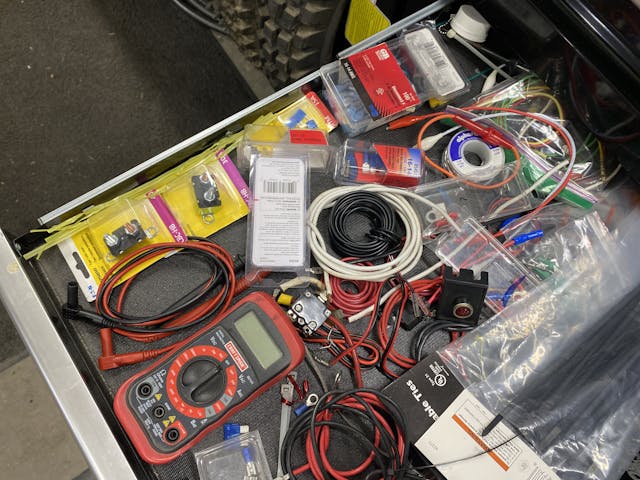





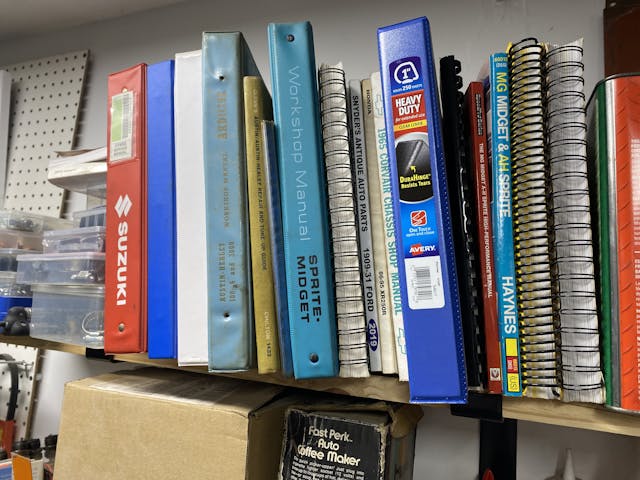














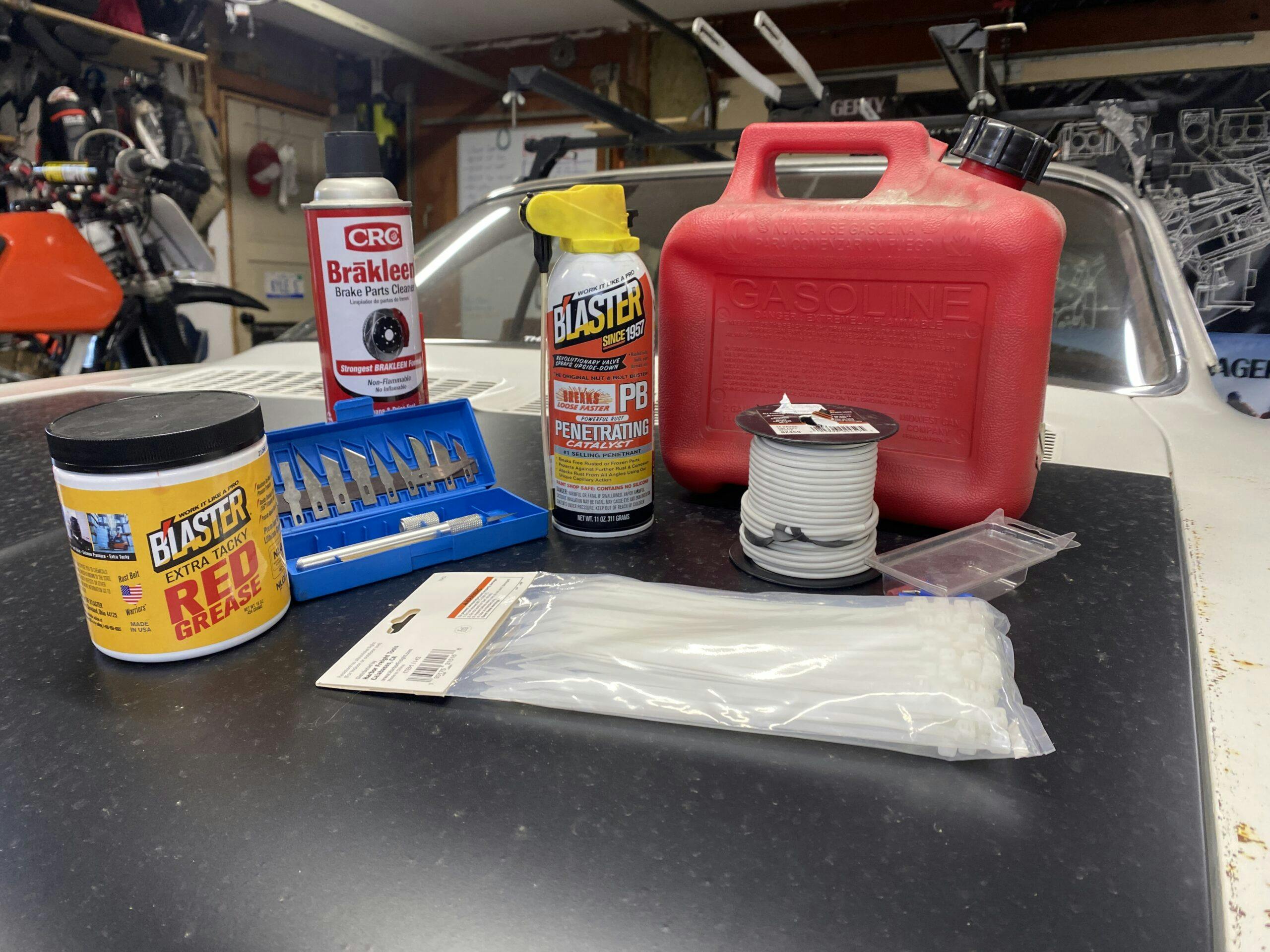
How about a heater! For those of us in the north that don’t have heat in the garage.
Need A/c here in the South. No heat
Manuals? We don’t need no stinking manuals! 🙂
A couple of good quality jackstands should be on those “garage musts” lists!
By Chance, Would Like To Bye A Shop Manual On A 83 Lincoln Mk 6, Which Is The Best One To Get,
Buy the Ford factory shop manuals on eBay.
HAVE THEM ALL AND MORE
Q Tips for small cleaning jobs
Stump up for a CO2 fire extinguisher. Putting out an oil / gasoline fire with a dry powder extinguisher will make you want to sell the car and the house rather than try to clean up the very corrosive, very fine powder that will be EVERYWHERE!! (don’t ask me how I know this….)
Careful, there .. you’re being nominated for membership in the “Old Wives Club” .. gasoline is far cheaper and rather better a solvent than anything you’ve pictured. Recognizing I’m 2x older than you & YOU live in the forsaken Northeast, YOU have to work in your garage under your main house; in the deep South, we work under shade trees ½ the time, going into the garage only to get the next tool or parts. Gasoline is rather safe when outside in a breeze .. with no sparking metal around the job area. (When INside your garage, yeah .. no open use of gas; use varsol.) I’ve cleaned many a rebuilding engine block, heads & moving parts outside in a galvanized tub & a ~gallon of unleaded. You can’t really do that with a spray can solvent. Also because I live down south, I have a ~1000ft2 clean room to assemble those rebuilt engines; why not move??
There are better solvents than gasoline; you tailor to solvent to the mess you are working with. I’m far from a tree-hugger I burn 100LL in the air; tons of 93 on the ground, but why damage it if you can avoid it? Most of the modern solvents out there are far better for the planet, too
How do you dispose of your now soiled gasoline? Can’t burn it. Can’t dump it. I’ll stick with a parts washer, and call Safety-Kleen every few years to swap the juice out.
I’ll stick in the North, thanks, and just venture down there to snag my old sheetmetal. Plenty easy to heat my insulated pole barn for the toys, and attached garage for the daily drivers.
Oily gas goes back into plastic jugs to wait until we have a controlled burn or a stack of waste wood to light off. You’re incorrect on the solvency of unleaded, AND it’s cheaper than any other good solvent beside water. (Yankee … that’s derogatory ..)
If gasoline was a better solvent than carb cleaner… our carbs would never need cleaning, right? You logic is flawed.
Many modern solvents do not carry the fire risk that comes with an open bath of fuel sitting out. You even put the caveat on there that using it requires care to not ignite it. Why have to tiptoe around when you don’t have to? And that’s not even mentioning the other impacts of trying to dispose of dirty fuel.
Nice having a decent radio to listen to while puttering for hours in the garage or breezeway …
Have everything on the list. The brake clean came in handy the other day getting that belligerent new lawn tractor tire to bead 🙂
Instead of oil dry I like to use large metal catch trays/pans. My shop floor is coated with epoxy so any spills wipe right up, but I’m about too old to be down on my hands & knees cleaning! 😂
Maybe not a necessity but keep large corrugated cardboard around (flattened boxes and such) to lay on the floor for comfort.
I also now use paper towels but I use all the other stuff Makes me feel good to have what I need
When using gasoline in your vintage car especially if it has a carburetor. Be sure to buy alcohol free gasoline.
It will save you carburetor problems in the future as the alcohol can damage internal parts. I learned this from
experience.
A good bench grinder with wire wheels to clean up those rusty bolts and other parts that are irreplaceable. A set of thread chasers is also a must.